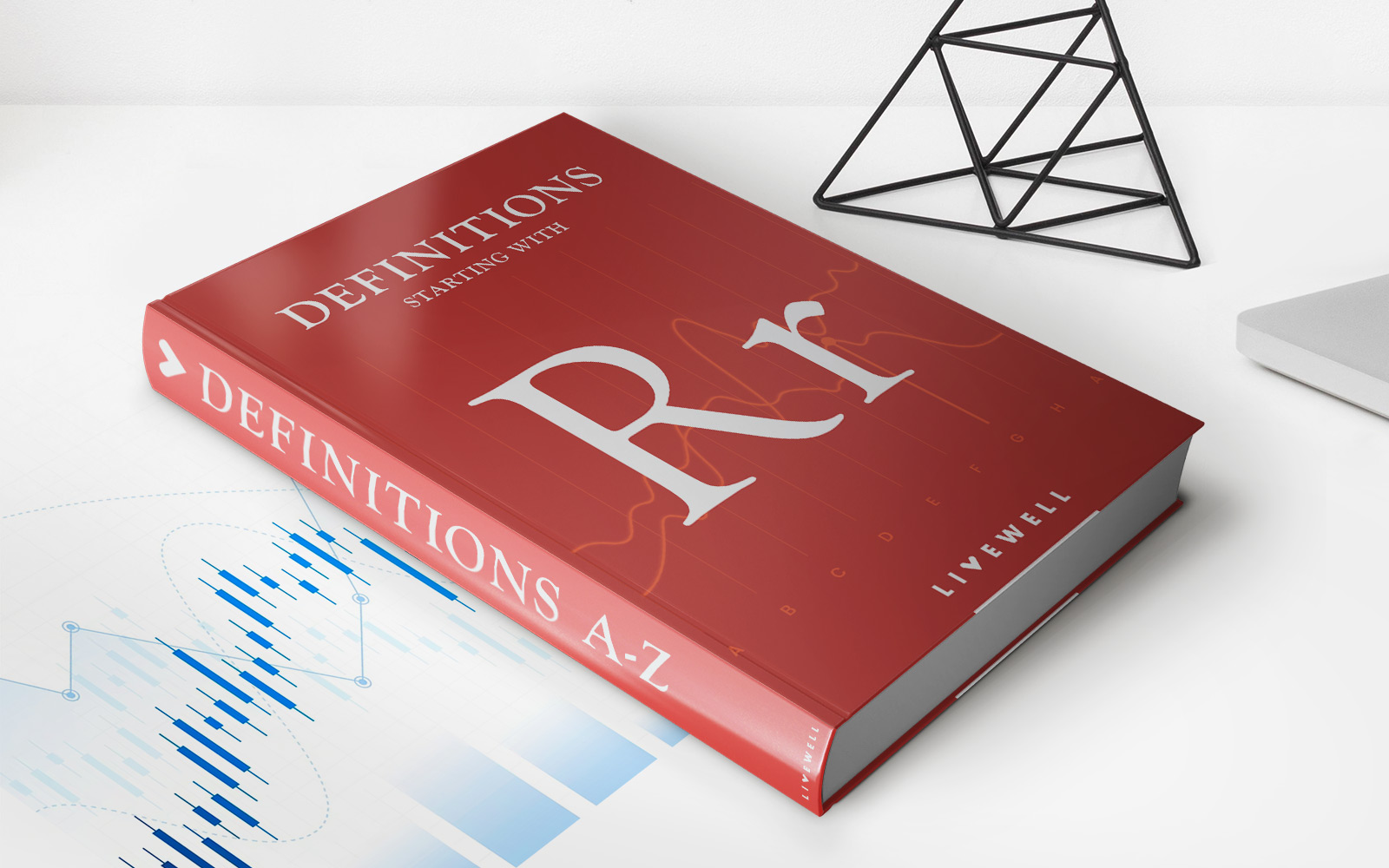Home>Finance>What Happens To Credit Score If You Pay Only The Minimum Payment


Finance
What Happens To Credit Score If You Pay Only The Minimum Payment
Published: February 25, 2024
Learn how paying only the minimum payment affects your credit score. Find out the impact on your finances and credit health. Get expert insights on finance.
(Many of the links in this article redirect to a specific reviewed product. Your purchase of these products through affiliate links helps to generate commission for LiveWell, at no extra cost. Learn more)
Table of Contents
- Understanding the Impact of Minimum Payments on Your Credit Score
- Understanding the Foundation of Financial Trustworthiness
- Unveiling the Consequences of Minimum Payments
- Unveiling the Elements that Shape Creditworthiness
- Navigating the Path to Responsible Credit Management
- Nurturing Financial Well-Being Through Informed Credit Management
Introduction
Understanding the Impact of Minimum Payments on Your Credit Score
When it comes to managing finances, credit cards play a significant role in the lives of many individuals. The convenience and flexibility they offer can be invaluable, especially during unexpected financial challenges. However, the manner in which credit card payments are handled can have a substantial impact on an individual's credit score. In this article, we will delve into the repercussions of making only the minimum payment on your credit card balance and explore how this practice can influence your overall credit score.
The world of credit scores and financial management can often appear complex and daunting, leaving many individuals feeling overwhelmed and uncertain about the best course of action. However, by gaining a deeper understanding of the relationship between minimum payments and credit scores, you can empower yourself to make informed decisions and take control of your financial well-being.
Throughout this article, we will unravel the intricacies of credit scoring, shedding light on the factors that contribute to a healthy credit score and the potential consequences of making only the minimum payment on your credit card balance. Additionally, we will provide valuable insights and practical tips for effectively managing credit card payments to safeguard and enhance your credit score.
Join us on this journey as we navigate the terrain of credit management, unraveling the impact of minimum payments on credit scores and equipping you with the knowledge to make sound financial decisions. Let's embark on this enlightening exploration of credit scores and minimum payments, empowering you to navigate the intricate landscape of financial well-being with confidence and clarity.
What is a Credit Score?
Understanding the Foundation of Financial Trustworthiness
A credit score is a numerical representation of an individual’s creditworthiness, serving as a pivotal factor in determining their eligibility for various financial products and services. This three-digit number, typically ranging from 300 to 850, provides lenders and financial institutions with an assessment of an individual’s likelihood to repay borrowed funds based on their credit history and current financial situation.
Several key components contribute to the calculation of a credit score, with payment history, credit utilization, length of credit history, new credit accounts, and the mix of credit types comprising the primary factors. Payment history holds significant weight in this evaluation, reflecting an individual’s track record of making timely payments on credit accounts, including credit cards, loans, and mortgages.
Credit scores are instrumental in shaping financial opportunities for individuals, influencing their ability to secure favorable interest rates on loans, obtain credit cards with attractive terms, and even qualify for rental properties or employment opportunities. A high credit score signifies responsible financial behavior and instills confidence in lenders and creditors, leading to more favorable terms and increased access to financial resources.
Conversely, a lower credit score may limit access to credit and result in less favorable terms, potentially leading to higher interest rates, reduced credit limits, and challenges in obtaining new credit. Understanding the significance of a credit score is essential for individuals seeking to establish and maintain a solid financial foundation, as it directly impacts their financial opportunities and overall well-being.
As we delve deeper into the impact of minimum payments on credit scores, it is crucial to recognize the pivotal role of credit scores in shaping financial experiences and opportunities. By comprehending the fundamental elements that contribute to credit scoring, individuals can gain valuable insights into the implications of their financial decisions and navigate the landscape of credit management with confidence and foresight.
The Impact of Minimum Payments on Credit Score
Unveiling the Consequences of Minimum Payments
When individuals make only the minimum payment on their credit card balances, they may inadvertently set off a chain reaction of financial repercussions that extend beyond the immediate relief of meeting the minimum requirement. While minimum payments alleviate the immediate pressure of settling the full balance, they can have a lasting impact on an individual’s credit score and overall financial well-being.
One of the primary concerns associated with making minimum payments is the potential escalation of credit card debt. By prolonging the repayment period and accruing interest on the remaining balance, individuals may find themselves trapped in a cycle of debt accumulation, leading to increased financial strain and diminished creditworthiness.
From a credit scoring perspective, consistently making only the minimum payment can signal financial distress and an inability to manage debt effectively. Credit scoring models take into account the ratio of outstanding balances to available credit, known as credit utilization. When individuals carry high balances relative to their credit limits due to making minimum payments, it can negatively impact their credit scores, as it suggests a reliance on credit and an elevated risk of default.
Furthermore, the prolonged utilization of credit without substantial progress in reducing balances can hinder individuals from building a positive payment history, a crucial component of credit scoring. Timely payments and responsible debt management contribute to a favorable payment history, demonstrating financial reliability and trustworthiness to potential lenders and creditors.
As a result, the practice of making only minimum payments can undermine an individual’s efforts to maintain a healthy credit score and may impede their ability to access favorable financial opportunities in the future. It is essential for individuals to recognize the broader implications of minimum payments and proactively address their credit card balances to mitigate the potential impact on their credit scores and overall financial stability.
By unraveling the far-reaching consequences of minimum payments on credit scores, individuals can gain a deeper appreciation for the interconnected nature of financial decisions and credit management. Armed with this understanding, they can take proactive steps to safeguard their credit scores and pursue a path of financial well-being characterized by responsible debt management and informed decision-making.
Factors Affecting Credit Score
Unveiling the Elements that Shape Creditworthiness
Several key factors play a pivotal role in determining an individual’s credit score, collectively influencing their creditworthiness and financial standing. Understanding these factors is essential for individuals seeking to proactively manage their credit and make informed decisions to enhance their overall financial well-being.
- Payment History: One of the most influential factors in credit scoring, payment history reflects an individual’s track record of making timely payments on credit accounts. Consistently meeting payment obligations contributes to a positive payment history, signaling financial responsibility and reliability to potential creditors.
- Credit Utilization: This factor assesses the ratio of outstanding balances to available credit, commonly referred to as credit utilization. Maintaining a low utilization rate, ideally below 30%, demonstrates responsible credit management and can positively impact an individual’s credit score.
- Length of Credit History: The length of time credit accounts have been open and the average age of accounts contribute to the credit score calculation. A longer credit history provides a more comprehensive view of an individual’s financial behavior and can potentially enhance their credit score.
- New Credit Accounts: Opening multiple new credit accounts within a short timeframe may raise concerns about financial stability and can temporarily lower credit scores. Prudent management of new credit applications is essential to mitigate potential negative impacts on credit scores.
- Credit Mix: The diversity of credit accounts, including credit cards, installment loans, and mortgages, can influence credit scores. A well-managed mix of credit types may have a positive effect on credit scores, highlighting an individual’s ability to handle various forms of credit responsibly.
By comprehending these fundamental factors that shape credit scores, individuals can gain valuable insights into the dynamics of credit scoring and the elements that contribute to their creditworthiness. Armed with this knowledge, they can adopt proactive strategies to optimize their credit scores and pave the way for enhanced financial opportunities and stability.
Tips for Managing Credit Card Payments
Navigating the Path to Responsible Credit Management
Effectively managing credit card payments is crucial for maintaining a healthy credit score and overall financial well-being. By implementing proactive strategies and adopting responsible financial practices, individuals can navigate the terrain of credit card payments with confidence and foresight, safeguarding their credit scores and financial stability.
- Pay More Than the Minimum: While meeting the minimum payment is essential, striving to pay more than the minimum whenever possible can accelerate debt repayment and reduce interest charges, ultimately contributing to a healthier credit score.
- Create a Payment Schedule: Establishing a consistent payment schedule for credit card bills can help individuals stay organized and ensure timely payments, thereby bolstering their payment history and creditworthiness.
- Monitor Credit Utilization: Keeping credit card balances well below the credit limits and minimizing credit utilization can positively impact credit scores. Regularly monitoring and managing credit utilization is vital for maintaining a favorable credit profile.
- Avoid Opening Unnecessary Accounts: Prudent credit management involves refraining from opening unnecessary credit accounts, as this can potentially lower credit scores and create additional financial obligations.
- Set Up Payment Reminders: Leveraging payment reminders, whether through automated alerts or calendar notifications, can help individuals stay on top of their credit card payments and prevent late payments that may adversely affect their credit scores.
- Seek Professional Guidance: In cases where individuals encounter challenges in managing credit card payments or navigating debt repayment, seeking guidance from financial advisors or credit counseling services can provide valuable support and insights.
By integrating these practical tips into their financial routines, individuals can proactively manage credit card payments and fortify their credit scores, paving the way for enhanced financial opportunities and long-term stability. Empowered with the knowledge and strategies to navigate credit management effectively, individuals can embark on a journey of responsible financial stewardship, ensuring their credit scores reflect their commitment to fiscal prudence and reliability.
Conclusion
Nurturing Financial Well-Being Through Informed Credit Management
As we conclude our exploration of the impact of minimum payments on credit scores and the fundamental elements of credit management, it becomes evident that the landscape of credit scoring is intricately intertwined with individual financial decisions and behaviors. The repercussions of making only the minimum payment on credit card balances extend beyond immediate financial relief, influencing credit scores and shaping financial opportunities.
Understanding the multifaceted nature of credit scoring and the factors that contribute to creditworthiness empowers individuals to proactively manage their credit and make informed decisions that align with their long-term financial goals. By embracing responsible credit management practices and leveraging practical strategies to navigate credit card payments, individuals can safeguard their credit scores and pave the way for enhanced financial stability and opportunities.
It is essential for individuals to recognize the broader implications of their credit management practices and strive to pay more than the minimum, maintain low credit utilization, and cultivate a positive payment history. By doing so, they can fortify their credit scores and position themselves for favorable financial prospects, including access to competitive loan terms, attractive credit card offers, and a solid foundation for long-term financial well-being.
Ultimately, the journey toward nurturing financial well-being is characterized by proactive decision-making, continuous learning, and a commitment to responsible financial stewardship. Armed with the insights and strategies shared in this article, individuals can embark on this journey with confidence, equipped to navigate the complexities of credit management and cultivate a credit profile that reflects their financial prudence and reliability.
As we part ways, let us carry forth this knowledge and approach credit management with a sense of empowerment and purpose, knowing that each financial decision contributes to the tapestry of our financial well-being. By embracing informed credit management practices and prioritizing responsible debt management, individuals can embark on a trajectory of financial stability and resilience, fostering a future defined by fiscal empowerment and enduring prosperity.














